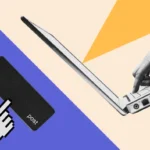Even if you’re not a fan of cryptocurrency, there’s a high chance you have probably at least heard of bitcoin and, with it, blockchain. This relatively new form of digital money has taken the world by storm in the past couple of years and, according to a number of experts, it seems to be the “future of money”. In short: it’s here to stay and if you’re not up to speed with it, it’s best you learn about it as soon as possible.
The World’s First Cryptocurrency
Just like the title says, bitcoin is the first cryptocurrency in the world, which was created by Satoshi Nakamoto, i.e. a person who was using that alias at the time. In 2009, Nakamoto had the idea to create a completely new cash system, which would allow people to make transactions without having to go through banks or other governmental institutions.
And that’s exactly how bitcoin functions nowadays: transactions are directly performed between people engaged, and bought or sold over digital currency exchange platforms. There are no intermediaries, and you don’t have to pay any third-party fees.
One of the greatest things about bitcoin, aside from being decentralized, is that works on the basis of consensus. If you want to buy or sell anything using this digital currency, other members in the bitcoin network (called blockchain) need to verify your transaction and it’s only when it’s verified, that it can be approved. This way, users get to avoid fraud and any possible alterations.
Limited, Pseudonymous, and Immutable
There are a couple of facts that you should know as a bitcoin user:
- Bitcoin is a lot of things, but the one thing it is not is limitless. In fact, there can’t be more than 21 million bitcoin in the world and it is estimated that this number will be reached by 2140.
- It is pseudonymous, which means that it’s virtually impossible to find information about the sender/receiver.
- Bitcoin transactions cannot be reversed, making it immutable. Once you make your transaction, it’s done and there is no going back.
- It’s as secure as it gets thanks to the verifications process—larger transactions can take up to 6 validations, which is about an hour.
To find out more about how bitcoin works, its history, and fun facts continue reading the infographic you’ll find below this text. You should have the basics down by the time you’re done.










